Quotes and Facts on Iraq
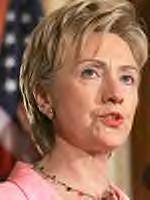
"Every nation has to either be with us, or against us. Those who harbor terrorists, or who finance them, are going to pay a price."
Senator Hillary Clinton (Democrat, New York)
September 13, 2001
http://www.wavsource.com/news/20010911a.htm
"In the four years since the inspectors left, intelligence reports show that Saddam Hussein has worked to rebuild his chemical and biological weapons stock, his missile delivery capability, and his nuclear program. He has also given aid, comfort, and sanctuary to terrorists, including Al Qaeda members...
It is clear, however, that if left unchecked, Saddam Hussein will continue to increase his capacity to wage biological and chemical warfare, and will keep trying to develop nuclear weapons."
Senator Hillary Clinton (Democrat, New York)
Addressing the US Senate
October 10, 2002
http://clinton.senate.gov/speeches/iraq_101002.html
_______________________________________________________________________________________

"In the next century, the community of nations may see more and more the very kind of threat Iraq poses now -- a rogue state with weapons of mass destruction ready to use them or provide them to terrorists, drug traffickers or organized criminals who travel the world among us unnoticed.
If we fail to respond today, Saddam and all those who would follow in his footsteps will be emboldened tomorrow by the knowledge that they can act with impunity, even in the face of a clear message from the United Nations Security Council and clear evidence of a weapons of mass destruction program."
President Clinton
Address to Joint Chiefs of Staff and Pentagon staff
February 17, 1998
http://www.cnn.com/ALLPOLITICS/1998/02/17/transcripts/clinton.iraq/
"His regime threatens the safety of his people, the stability of his region, and the security of all the rest of us.
What if he fails to comply, and we fail to act, or we take some ambiguous third route which gives him yet more opportunities to develop this program of weapons of mass destruction and continue to press for the release of the sanctions and continue to ignore the solemn commitments that he made?
Well, he will conclude that the international community has lost its will. He will then conclude that he can go right on and do more to rebuild an arsenal of devastating destruction.
And some day, some way, I guarantee you, he'll use the arsenal."
President Clinton
Address to Joint Chiefs of Staff and Pentagon staff
February 17, 1998 http://www.cnn.com/ALLPOLITICS/1998/02/17/transcripts/clinton.iraq/
Regime change in Iraq has been official US policy since 1998:
The Iraq Liberation Act of 1998 (sponsored by Bob Kerrey, John McCain, and Joseph Lieberman, and signed into law by President Clinton) states:
"It should be the policy of the United States to support efforts to remove the regime headed by Saddam Hussein from power in Iraq and to promote the emergence of a democratic government to replace that regime."
Iraq Liberation Act of 1998
105th Congress, 2nd Session
September 29, 1998
http://www.globalsecurity.org/wmd/library/news/iraq/1998/980929-in2.htm
America is threatened by an "unholy axis":
"We must exercise responsibility not just at home, but around the world. On the eve of a new century, we have the power and the duty to build a new era of peace and security.
We must combat an unholy axis of new threats from terrorists, international criminals, and drug traffickers. These 21st century predators feed on technology and the free flow of information... And they will be all the more lethal if weapons of mass destruction fall into their hands.
Together, we must confront the new hazards of chemical and biological weapons and the outlaw states, terrorists, and organized criminals seeking to acquire them. Saddam Hussein has spent the better part of this decade and much of his nation's wealth not on providing for the Iraqi people but on developing nuclear, chemical, and biological weapons and the missiles to deliver them."
President Clinton
State of the Union address
January 27, 1998
http://clinton5.nara.gov/textonly/WH/SOTU98/address.html
http://www.usemb.ee/union98.php3
"Heavy as they are, the costs of action must be weighed against the price of inaction. If Saddam defies the world and we fail to respond, we will face a far greater threat in the future. Saddam will strike again at his neighbors; he will make war on his own people. And mark my words, he will develop weapons of mass destruction. He will deploy them, and he will use them."
President Clinton
National Address from the Oval Office
December 16, 1998
http://clinton4.nara.gov/WH/New/html/19981216-3611.html
http://www.cnn.com/ALLPOLITICS/stories/1998/12/16/transcripts/clinton.html
_______________________________________________________________________________________

"It is the duty of any president, in the final analysis, to defend this nation and dispel the security threat. Saddam Hussein has brought military action upon himself by refusing for 12 years to comply with the mandates of the United Nations. The brave and capable men and women of our armed forces and those who are with us will quickly, I know, remove him once and for all as a threat to his neighbors, to the world, and to his own people, and I support their doing so."
Senator John Kerry (Democrat, Massachusetts)
Statement on eve of military strikes against Iraq
March 17, 2003
http://www.tnr.com/doc.mhtml?i=20030331&s=lizza033103
"It appears that with the deadline for exile come and gone, Saddam Hussein has chosen to make military force the ultimate weapons inspections enforcement mechanism. If so, the only exit strategy is victory, this is our common mission and the world's cause."
Senator John Kerry (Democrat, Massachusetts)
Statement on commencement of military strikes against Iraq
March 20, 2003
http://kerry.senate.gov/high/record.cfm?id=191582
"Those who doubted whether Iraq or the world would be better off without Saddam Hussein, and those who believe today that we are not safer with his capture, don't have the judgment to be President, or the credibility to be elected President.
No one can doubt or should doubt that we are safer -- and Iraq is better -- because Saddam Hussein is now behind bars."
Senator John Kerry (Democrat, Massachusetts)
Speech at Drake University in Iowa
December 16, 2003
http://www.jsonline.com/news/gen/dec03/193182.asp?format=print
"I think it was the right decision to disarm Saddam Hussein. And when the president made the decision, I supported him, and I support the fact that we did disarm him."
Senator John Kerry (Democrat, Massachusetts)
During a Democratic Primary Debate at the University of South Carolina
May 3, 2003
http://www.vote-smart.org/debate_transcripts/trans_1.pdf
John Kerry, while voting YES to the Resolution authorizing US military force against Iraq:
"I will be voting to give the President of the United States the authority to use force - if necessary - to disarm Saddam Hussein because I believe that a deadly arsenal of weapons of mass destruction in his hands is a real and grave threat to our security."
Senator John Kerry (Democrat, Massachusetts)
Addressing the US Senate
October 9, 2002
http://www.johnkerry.com/news/speeches/spc_2002_1009.html
"Without question, we need to disarm Saddam Hussein. He is a brutal, murderous dictator, leading an oppressive regime. We all know the litany of his offenses. He presents a particularly grievous threat because he is so consistently prone to miscalculation. He miscalculated an eight-year war with Iran. He miscalculated the invasion of Kuwait. He miscalculated America's response to that act of naked aggression. He miscalculated the result of setting oil rigs on fire. He miscalculated the impact of sending scuds into Israel and trying to assassinate an American President. He miscalculated his own military strength. He miscalculated the Arab world's response to his misconduct. And now he is miscalculating America's response to his continued deceit and his consistent grasp for weapons of mass destruction. That is why the world, through the United Nations Security Council, has spoken with one voice, demanding that Iraq disclose its weapons programs and disarm.
So the threat of Saddam Hussein with weapons of mass destruction is real, but it is not new. It has been with us since the end of the Persian Gulf War.
In U.N. Security Council Resolution 1441, the United Nations has now affirmed that Saddam Hussein must disarm or face the most serious consequences. Let me make it clear that the burden is resoundingly on Saddam Hussein to live up to the ceasefire agreement he signed and make clear to the world how he disposed of weapons he previously admitted to possessing."
Senator John Kerry (Democrat, Massachusetts)
Speech at Georgetown University
January 23, 2003
http://kerry.senate.gov/bandwidth/cfm/record.cfm?id=189831
_______________________________________________________________________________________

Senator John Edwards, when asked about "Axis of Evil" countries Iran, Iraq, and North Korea:
"I mean, we have three different countries that, while they all present serious problems for the United States -- they're dictatorships, they're involved in the development and proliferation of weapons of mass destruction -- you know, the most imminent, clear and present threat to our country is not the same from those three countries. I think Iraq is the most serious and imminent threat to our country."
Senator John Edwards (Democrat, North Carolina)
During an interview on CNN's "Late Edition"
February 24, 2002
http://www.cnn.com/TRANSCRIPTS/0202/24/le.00.html
John Edwards, while voting YES to the Resolution authorizing US military force against Iraq:
"Others argue that if even our allies support us, we should not support this resolution because confronting Iraq now would undermine the long-term fight against terrorist groups like Al Qaeda. Yet, I believe that this is not an either-or choice. Our national security requires us to do both, and we can."
Senator John Edwards (Democrat, North Carolina)
US Senate floor statement: "Authorization of the Use of
United States Armed Forces Against Iraq"
October 10, 2002
http://edwards.senate.gov/statements/20021010_iraq.html
"As a member of the Senate Intelligence Committee, I firmly believe that the issue of Iraq is not about politics. It's about national security. We know that for at least 20 years, Saddam Hussein has obsessively sought weapons of mass destruction through every means available. We know that he has chemical and biological weapons today. He has used them in the past, and he is doing everything he can to build more. Each day he inches closer to his longtime goal of nuclear capability -- a capability that could be less than a year away.
The path of confronting Saddam is full of hazards. But the path of inaction is far more dangerous. This week, a week where we remember the sacrifice of thousands of innocent Americans made on 9-11, the choice could not be starker. Had we known that such attacks were imminent, we surely would have used every means at our disposal to prevent them and take out the plotters. We cannot wait for such a terrible event -- or, if weapons of mass destruction are used, one far worse -- to address the clear and present danger posed by Saddam Hussein's Iraq."
Senator John Edwards (Democrat, North Carolina)
US Senate floor statement: "Iraqi Dictator Must Go"
September 12, 2002
http://edwards.senate.gov/statements/20020912_iraq.html
"As a member of the Senate Intelligence Committee, I firmly believe that the issue of Iraq is not about politics. It's about national security. We know that for at least 20 years, Saddam Hussein has obsessively sought weapons of mass destruction through every means available. We know that he has chemical and biological weapons today. He has used them in the past, and he is doing everything he can to build more. Each day he inches closer to his longtime goal of nuclear capability -- a capability that could be less than a year away.
I believe that Saddam Hussein's Iraqi regime represents a clear threat to the United States, to our allies, to our interests around the world, and to the values of freedom and democracy we hold dear.
What's more, the terrorist threat against America is all too clear. Thousands of terrorist operatives around the world would pay anything to get their hands on Saddam's arsenal, and there is every possibility that he could turn his weapons over to these terrorists. No one can doubt that if the terrorists of September 11th had weapons of mass destruction, they would have used them. On September 12, 2002, we can hardly ignore the terrorist threat, and the serious danger that Saddam would allow his arsenal to be used in aid of terror.
The time has come for decisive action. With our allies, we must do whatever is necessary to guard against the threat posed by an Iraq armed with weapons of mass destruction, and under the thumb of Saddam Hussein.
The United States must lead an international effort to remove the regime of Saddam Hussein -- and to assure that Iraq fulfills its obligations to the international community.
This is not an easy decision, and it carries many risks. It will also carry costs, certainly in resources, and almost certainly in lives. After careful consideration, I believe that the risk of inaction is far greater than the risk of action.
We must address the most insidious threat posed by weapons of mass destruction -- the threat that comes from the ability of terrorists to obtain them.
The path of confronting Saddam is full of hazards. But the path of inaction is far more dangerous. This week, a week where we remember the sacrifice of thousands of innocent Americans made on 9-11, the choice could not be starker. Had we known that such attacks were imminent, we surely would have used every means at our disposal to prevent them and take out the plotters. We cannot wait for such a terrible event -- or, if weapons of mass destruction are used, one far worse -- to address the clear and present danger posed by Saddam Hussein's Iraq."
Senator John Edwards (Democrat, North Carolina)
Addressing the US Senate
September 12, 2002
http://edwards.senate.gov/statements/20020912_iraq.html
_______________________________________________________________________________________

"There is no doubt that Saddam Hussein's regime is a serious danger, that he is a tyrant, and that his pursuit of lethal weapons of mass destruction cannot be tolerated. He must be disarmed."
Senator Edward Kennedy (Democrat, Massachusetts)
Speech at Johns Hopkins School of Advanced International Studies
September 27, 2002
http://kennedy.senate.gov/~kennedy/statements/02/09/2002927718.html
_______________________________________________________________________________________
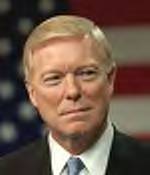
Congressman Gephardt links Saddam with the threat of terrorists nuking US cities:
BOB SCHIEFFER, Chief Washington Correspondent:
And with us now is the Democratic presidential candidate Dick Gephardt. Congressman, you supported taking military action in Iraq. Do you think now it was the right thing to do?
REP. RICHARD GEPHARDT, D-MO, Democratic Presidential Candidate:
I do. I base my determination on what I heard from the CIA. I went out there a couple of times and talked to everybody, including George Tenet. I talked to people in the Clinton administration.
SCHIEFFER:
Well, let me just ask you, do you feel, Congressman, that you were misled?
GEPHARDT:
I don't. I asked very direct questions of the top people in the CIA and people who'd served in the Clinton administration. And they said they believed that Saddam Hussein either had weapons or had the components of weapons or the ability to quickly make weapons of mass destruction. What we're worried about is an A-bomb in a Ryder truck in New York, in Washington and St. Louis. It cannot happen. We have to prevent it from happening. And it was on that basis that I voted to do this.
Congressman Richard Gephardt (Democrat, Montana)
Interviewed on CBS News "Face the Nation"
November 2, 2003
http://www.cbsnews.com/stories/2003/11/03/ftn/printable581509.shtml
_______________________________________________________________________________________

"We have not reached parity with them. We have the right to kill 4 million Americans -- 2 million of them children -- and to exile twice as many and wound and cripple hundreds of thousands. Furthermore, it is our right to fight them with chemical and biological weapons, so as to afflict them with the fatal maladies that have afflicted the Muslims because of the [Americans'] chemical and biological weapons."
Islamic terrorist group "Al Qaeda"
June 12, 2002
http://www.memri.org/bin/articles.cgi?Page=archives&Area=sd&ID=SP38802
_______________________________________________________________________________________

"[W]e have evidence of meetings between Iraqi officials and leaders of al Qaeda, and testimony that Iraqi agents helped train al Qaeda operatives to use chemical and biological weapons. We also know that al Qaeda leaders have been, and are now, harbored in Iraq.
Having reached the conclusion I have about the clear and present danger Saddam represents to the U.S., I want to give the president a limited but strong mandate to act against Saddam."
Senator Joseph Lieberman (Democrat, Connecticut)
In a Wall Street Journal editorial Lieberman authored titled: "Why Democrats Should Support the President on Iraq"
October 7, 2002
http://www.opinionjournal.com/editorial/feature.html?id=110002391
_______________________________________________________________________________________

"Iraq is a long way from Ohio, but what happens there matters a great deal here. For the risks that the leaders of a rogue state will use nuclear, chemical or biological weapons against us or our allies is the greatest security threat we face."
Madeleine Albright, President Clinton's Secretary of State
Town Hall Meeting on Iraq at Ohio State University
February 18, 1998
http://www.fas.org/news/iraq/1998/02/20/98022006_tpo.html
"No one has done what Saddam Hussein has done, or is thinking of doing. He is producing weapons of mass destruction, and he is qualitatively and quantitatively different from other dictators."
Madeleine Albright, President Clinton's Secretary of State
Town Hall Meeting on Iraq at Ohio State University
February 18, 1998
http://www.cnn.com/WORLD/9802/18/town.meeting.folo/
_____________________________________________________________________________________

_ "Imagine the consequences if Saddam fails to comply and we fail to act. Saddam will be emboldened, believing the international community has lost its will. He will rebuild his arsenal of weapons of mass destruction. And some day, some way, I am certain, he will use that arsenal again, as he has ten times since 1983."
Sandy Berger, President Clinton's National Security Advisor
Town Hall Meeting on Iraq at Ohio State University
February 18, 1998
http://www.fas.org/news/iraq/1998/02/20/98022006_tpo.html
________________________________________________________________________________________________

"Ten years after the Gulf War and Saddam is still there and still continues to stockpile weapons of mass destruction. Now there are suggestions he is working with al Qaeda, which means the very terrorists who attacked the United States last September may now have access to chemical and biological weapons."
James P. Rubin, President Clinton's State Department spokesman
In a PBS documentary titled "Saddam's Ultimate Solution"
July 11, 2002
http://www.pbs.org/wnet/wideangle/shows/saddam/
_______________________________________________________________________________________
"Dear Mr. President: ... We urge you, after consulting with Congress, and consistent with the U.S. Constitution and laws, to take necessary actions (including, if appropriate, air and missile strikes on suspect Iraq sites) to respond effectively to the threat posed by Iraq's refusal to end its weapons of mass destruction programs."
Sincerely,
Carl Levin, Joe Lieberman, Frank R. Lautenberg, Dick Lugar, Kit Bond, Jon Kyl, Chris Dodd, John McCain, Kay Bailey Hutchison, Alfonse D'Amato, Bob Kerrey, Pete V. Domenici, Dianne Feinstein, Barbara A. Mikulski, Thomas Daschle, John Breaux, Tim Johnson, Daniel K. Inouye, Arlen Specter, James Inhofe, Strom Thurmond, Mary L. Landrieu, Wendell Ford, John Kerry, Chuck Grassley, Jesse Helms, Rick Santorum.
Letter to President Clinton
Signed by Senators Tom Daschle, John Kerry and others
October 9, 1998
http://www.iraqwatch.org/government/US/Letters,%20reports%20and%20statements/levin-10-9-98.html
________________________________________________________________________________________________

"Iraq's search for weapons of mass destruction has proven impossible to completely deter and we should assume that it will continue for as long as Saddam is in power.
We know that he has stored secret supplies of biological and chemical weapons throughout his country."
Al Gore, Former Clinton Vice-President
Speech to San Francisco Commonwealth Club
September 23, 2002
http://www.usatoday.com/news/nation/2002-09-23-gore-text_x.htm
http://www.guardian.co.uk/usa/story/0,12271,797999,00.html
http://www.smh.com.au/articles/2002/09/24/1032734161501.html
Al Gore said last night that the time had come for a "final reckoning" with Iraq, describing the country as a "virulent threat in a class by itself" and suggesting that the United States should consider ways to oust Saddam Hussein.
The New York Times
Gore, Championing Bush, Calls For a 'Final Reckoning' With Iraq
February 13, 2002
http://query.nytimes.com/search/abstract?res=F10B1FFF3D5B0C708DDDAB0894DA404482
________________________________________________________________________________________________
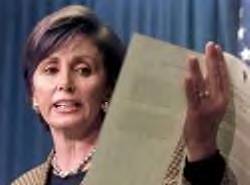
"As a member of the House Intelligence Committee, I am keenly aware that the proliferation of chemical and biological weapons is an issue of grave importance to all nations. Saddam Hussein has been engaged in the development of weapons of mass destruction technology which is a threat to countries in the region and he has made a mockery of the weapons inspection process."
Congresswoman Nancy Pelosi (Democrat, California)
Statement on US Led Military Strike Against Iraq
December 16, 1998
http://www.house.gov/pelosi/priraq1.htm
________________________________________________________________________________________________

"The last UN weapons inspectors left Iraq in October of 1998. We are confident that Saddam Hussein retained some stockpiles of chemical and biological weapons, and that he has since embarked on a crash course to build up his chemical and biological warfare capability. Intelligence reports also indicate that he is seeking nuclear weapons, but has not yet achieved nuclear capability."
Robert C. Byrd
Former Ku Klux Klan recruiter, currently a US Senator (Democrat, West Virginia)
Addressing the US Senate
October 3, 2002
http://byrd.senate.gov/byrd_newsroom/byrd_news_oct2002/rls_oct2002/rls_oct2002_2.html
http://australianpolitics.com/news/2002/10/02-10-03a.shtml
http://www.cooperativeresearch.org/archive/2002/byrd100302.htm
________________________________________________________________________________________________
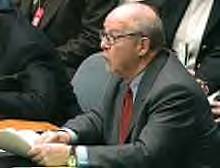
"Iraq appears not to have come to a genuine acceptance -- not even today -- of the disarmament, which was demanded of it and which it needs to carry out to win the confidence of the world and to live in peace."
Dr. Hans Blix, Chief UN Weapons Inspector
Addressing the UN Security Council
January 27, 2003
http://www.un.org/apps/news/infocusnewsiraq.asp?NewsID=354&sID=6
http://www.cnn.com/2003/US/01/27/sprj.irq.transcript.blix
"The recent inspection find in the private home of a scientist of a box of some 3,000 pages of documents, much of it relating to the laser enrichment of uranium support a concern that has long existed that documents might be distributed to the homes of private individuals. ...we cannot help but think that the case might not be isolated and that such placements of documents is deliberate to make discovery difficult and to seek to shield documents by placing them in private homes."
Dr. Hans Blix, Chief UN Weapons Inspector
Addressing the UN Security Council
January 27, 2003
http://www.un.org/apps/news/infocusnewsiraq.asp?NewsID=354&sID=6
http://www.cnn.com/2003/US/01/27/sprj.irq.transcript.blix
________________________________________________________________________________________________

"I have mentioned the issue of anthrax to the Council on previous occasions and I come back to it as it is an important one.
Iraq has declared that it produced about 8,500 litres of this biological warfare agent, which it states it unilaterally destroyed in the summer of 1991. Iraq has provided little evidence for this production and no convincing evidence for its destruction.
There are strong indications that Iraq produced more anthrax than it declared, and that at least some of this was retained after the declared destruction date. It might still exist. Either it should be found and be destroyed under UNMOVIC supervision or else convincing evidence should be produced to show that it was, indeed, destroyed in 1991."
Dr. Hans Blix, Chief UN Weapons Inspector
Addressing the UN Security Council
January 27, 2003
http://www.un.org/apps/news/infocusnewsiraq.asp?NewsID=354&sID=6
http://www.cnn.com/2003/US/01/27/sprj.irq.transcript.blix
"The nerve agent VX is one of the most toxic ever developed.
13,000 chemical bombs were dropped by the Iraqi Air Force between 1983 and 1988, while Iraq has declared that 19,500 bombs were consumed during this period. Thus, there is a discrepancy of 6,500 bombs. The amount of chemical agent in these bombs would be in the order of about 1,000 tonnes."
Dr. Hans Blix, Chief UN Weapons Inspector
Addressing the UN Security Council
January 27, 2003
http://www.un.org/apps/news/infocusnewsiraq.asp?NewsID=354&sID=6
http://www.cnn.com/2003/US/01/27/sprj.irq.transcript.blix
UN weapons inspectors were forced to leave Iraq in 1998:
CNN
November 5, 1998
U.N. Security Council votes to condemn Iraq
The United Nations Security Council late Thursday voted unanimously to condemn Iraq and to demand that Baghdad immediately resume cooperation with U.N. weapons inspectors. Baghdad has already said it will not comply.
The resolution called Iraq's decision last week to halt cooperation with the U.N. Special Commission a "flagrant violation" of the 1991 resolution on Iraqi disarmament. It is the 45th U.N. resolution involving Iraq since the country invaded Kuwait in 1990.
http://www.cnn.com/WORLD/meast/9811/05/un.iraq.02
________________________________________________________________________________________________

CNN: How did Hussein intend to use the weapon, once it was completed?
HAMZA: Saddam has a whole range of weapons of mass destruction, nuclear, biological and chemical. According to German intelligence estimates, we expect him to have three nuclear weapons by 2005. So, the window will close by 2005, and we expect him then to be a lot more aggressive with his neighbors and encouraging terrorism, and using biological weapons. Now he's using them through surrogates like al Qaeda, but we expect he'll use them more aggressively then.
Dr. Khidhir Hamza, former Iraqi Nuclear Scientist for 20 years
Interviewed on CNN
October 22, 2001
http://www.cnn.com/2001/COMMUNITY/10/22/hamza.cnna/
________________________________________________________________________________________________

CNN
October 10, 2002
House gives Bush authority for war with Iraq
The House voted 296-133 to give Bush the authority to use U.S. military force to make Iraq comply with U.N. resolutions requiring it to give up weapons of mass destruction.
http://www.cnn.com/2002/ALLPOLITICS/10/10/iraq.us
________________________________________________________________________________________________

CNN
October 11, 2002
Senate approves Iraq war resolution
In a major victory for the White House, the Senate early Friday voted 77-23 to authorize President Bush to attack Iraq if Saddam Hussein refuses to give up weapons of mass destruction as required by U.N. resolutions.
http://www.cnn.com/2002/ALLPOLITICS/10/11/iraq.us
________________________________________________________________________________________________

"Some have said we must not act until the threat is imminent. Since when have terrorists and tyrants announced their intentions, politely putting us on notice before they strike? If this threat is permitted to fully and suddenly emerge, all actions, all words, and all recriminations would come too late. Trusting in the sanity and restraint of Saddam Hussein is not a strategy, and it is not an option."
President Bush
State of the Union address
January 28, 2003
http://www.whitehouse.gov/news/releases/2003/01/20030128-19.html
________________________________________________________________________________________________
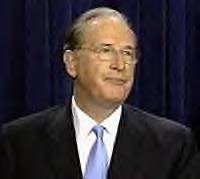
"The global community -- in the form of the United Nations -- has declared repeatedly, through multiple resolutions, that the frightening prospect of a nuclear-armed Saddam cannot come to pass. But the U.N. has been unable to enforce those resolutions. We must eliminate that threat now, before it is too late.
But this isn't just a future threat. Saddam's existing biological and chemical weapons capabilities pose a very real threat to America, now. Saddam has used chemical weapons before, both against Iraq's enemies and against his own people. He is working to develop delivery systems like missiles and unmanned aerial vehicles that could bring these deadly weapons against U.S. forces and U.S. facilities in the Middle East.
As the attacks of September 11 demonstrated, the immense destructiveness of modern technology means we can no longer afford to wait around for a smoking gun. September 11 demonstrated that the fact that an attack on our homeland has not yet occurred cannot give us any false sense of security that one will not occur in the future. We no longer have that luxury.
September 11 changed America. It made us realize we must deal differently with the very real threat of terrorism, whether it comes from shadowy groups operating in the mountains of Afghanistan or in 70 other countries around the world, including our own.
There has been some debate over how "imminent" a threat Iraq poses. I do believe that Iraq poses an imminent threat, but I also believe that after September 11, that question is increasingly outdated. It is in the nature of these weapons, and the way they are targeted against civilian populations, that documented capability and demonstrated intent may be the only warning we get. To insist on further evidence could put some of our fellow Americans at risk. Can we afford to take that chance? We cannot!
The President has rightly called Saddam Hussein's efforts to develop weapons of mass destruction a grave and gathering threat to Americans. The global community has tried but failed to address that threat over the past decade. I have come to the inescapable conclusion that the threat posed to America by Saddam's weapons of mass destruction is so serious that despite the risks -- and we should not minimize the risks -- we must authorize the President to take the necessary steps to deal with that threat."
Senator John D. Rockefeller (Democrat, West Virginia)
Also a member of the Senate Intelligence Committee
Addressing the US Senate
October 10, 2002
http://www.senate.gov/~rockefeller/news/2002/flrstmt0102002.html
________________________________________________________________________________________________


"Dear Mr. President:
The events of September 11 have highlighted the vulnerability of the United States to determined terrorists. As we work to clean up Afghanistan and destroy al Qaeda, it is imperative that we plan to eliminate the threat from Iraq.
This December will mark three years since United Nations inspectors last visited Iraq. There is no doubt that since that time, Saddam Hussein has reinvigorated his weapons programs.
The threat from Iraq is real, and it cannot be permanently contained. For as long as Saddam Hussein is in power in Baghdad, he will seek to acquire weapons of mass destruction and the means to deliver them. We have no doubt that these deadly weapons are intended for use against the United States and its allies. Consequently, we believe we must directly confront Saddam, sooner rather than later.
Mr. President, all indications are that in the interest of our own national security, Saddam Hussein must be removed from power."
Sincerely,
Congressman Harold Ford (Democrat, Tennessee)
Senator Bob Graham (Democrat, Florida)
Congressman Tom Lantos (Democrat, California)
Senator Joseph Lieberman (Democrat, Connecticut)
Senator Sam Brownback (Republican, Kansas)
Senator Jesse Helms (Republican, North Carolina)
Congressman Henry Hyde (Republican, Illinois)
Senator Trent Lott (Republican, Mississippi)
Senator John McCain (Republican, Arizona)
Senator Richard Shelby (Republican, Alabama)
Letter to President Bush
December 5, 2001
http://www.house.gov/ford/12_06_01a.htm
________________________________________________________________________________________________
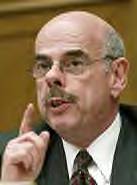
"He has systematically violated, over the course of the past 11 years, every significant UN resolution that has demanded that he disarm and destroy his chemical and biological weapons, and any nuclear capacity. This he has refused to do. He lies and cheats; he snubs the mandate and authority of international weapons inspectors; and he games the system to keep buying time against enforcement of the just and legitimate demands of the United Nations, the Security Council, the United States and our allies. Those are simply the facts."
Congressman Henry Waxman (Democrat, California)
Addressing the US Congress
October 10, 2002
http://www.house.gov/waxman/news_files/news_statements_res_iraq_10_10_02.htm
http://www.house.gov/waxman/news_files/pdfs/news_statements_res_iraq_10_10_02.pdf
________________________________________________________________________________________________
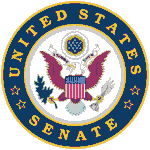
Full text of Resolution authorizing US military force against Iraq.
US Senators who voted YES to authorize the use of United States Armed Forces against Iraq:
Allard, Wayne (R-CO)
Allen, George (R-VA)
Baucus, Max (D-MT)
Bayh, Evan (D-IN)
Bennett, Robert (R-UT)
Biden, Joseph (D-DE)
Bond, Christopher (R-MO)
Breaux, John (D-LA)
Brownback, Sam (R-KS)
Bunning, Jim (R-KY)
Burns, Conrad (R-MT)
Campbell, Ben (R-CO)
Cantwell, Maria (D-WA)
Carnahan, Jean (D-MO)
Carper, Thomas (D-DE)
Cleland, Max (D-GA)
Clinton, Hillary (D-NY)
Cochran, Thad (R-MS)
Collins, Susan (R-ME)
Craig, Larry (R-ID)
Crapo, Michael (R-ID)
Daschle, Tom (D-SD)
DeWine, Mike (R-OH)
Dodd, Christopher (D-CT)
Domenici, Pete (R-NM)
Dorgan, Byron (D-ND)
Edwards, John (D-NC)
Ensign, John (R-NV)
Enzi, Michael (R-WY)
Feinstein, Dianne (D-CA)
Fitzgerald, Peter (R-IL)
Frist, Bill (R-TN)
Gramm, Phil (R-TX)
Grassley, Chuck (R-IA)
Gregg, Judd (R-NH)
Hagel, Chuck (R-NE)
Harkin, Tom (D-IA)
Hatch, Orrin (R-UT)
Helms, Jesse (R-NC)
Hollings, Ernest (D-SC)
Hutchinson, Tim (R-AR)
Hutchison, Kay (R-TX)
Inhofe, James (R-OK)
Johnson, Tim (D-SD)
Kerry, John (D-MA)
Kohl, Herb (D-WI)
Kyl, Jon (R-AZ)
Landrieu, Mary (D-LA)
Lieberman, Joseph (D-CT)
Lincoln, Blanche (D-AR)
Lott, Trent (R-MS)
Lugar, Richard (R-IN)
McCain, John (R-AZ)
McConnell, Mitch (R-KY)
Miller, Zell (D-GA)
Murkowski, Lisa (R-AK)
Nelson, Bill (D-FL)
Nelson, Ben (D-NE)
Nickles, Don (R-OK)
Reid, Harry (D-NV)
Roberts, Pat (R-KS)
Rockefeller, John (D-WV)
Santorum, Rick (R-PA)
Schumer, Charles (D-NY)
Sessions, Jeff (R-AL)
Shelby, Richard (R-AL)
Smith, Robert (R-NH)
Smith, Gordon (R-OR)
Snowe, Olympia (R-ME)
Specter, Arlen (R-PA)
Stevens, Ted (R-AK)
Thomas, Craig (R-WY)
Thompson, Fred (R-TN)
Thurmond, Strom (R-SC)
Torricelli, Robert (D-NJ)
Voinovich, George (R-OH)
Warner, John (R-VA)
________________________________________________________________________________________________
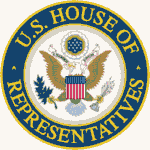
Full text of Resolution authorizing US military force against Iraq.
US Congressional Representatives who voted YES to authorize the use of United States Armed Forces against Iraq:
Ackerman
Aderholt
Akin
Andrews
Armey
Bachus
Baker
Ballenger
Barcia
Barr
Bartlett
Barton
Bass
Bentsen
Bereuter
Berkley
Berman
Berry
Biggert
Bilirakis
Bishop
Blagojevich
Blunt
Boehlert
Boehner
Bonilla
Bono
Boozman
Borski
Boswell
Boucher
Boyd
Brady (TX)
Brown (SC)
Bryant
Burr
Burton
Buyer
Callahan
Calvert
Camp
Cannon
Cantor
Capito
Carson (OK)
Castle
Chabot
Chambliss
Clement
Coble
Collins
Combest
Cooksey
Cox
Cramer
Crane
Crenshaw
Crowley
Cubin
Culberson
Cunningham
Davis (FL)
Davis, Jo Ann
Davis, Tom
Deal
DeLay
DeMint
Deutsch
Diaz-Balart
Dicks
Dooley
Doolittle
Dreier
Dunn
Edwards
Ehlers
Ehrlich
Emerson
Engel
English
Etheridge
Everett
Ferguson
Flake
Fletcher
Foley
Forbes
Ford
Fossella
Frelinghuysen
Frost
Gallegly
Ganske
Gekas
Gephardt
Gibbons
Gilchrest
Gillmor
Gilman
Goode
Goodlatte
Gordon
Goss
Graham
Granger
Graves
Green (TX)
Green (WI)
Greenwood
Grucci
Gutknecht
Hall (TX)
Hansen
Harman
Hart
Hastert
Hastings (WA)
Hayes
Hayworth
Hefley
Herger
Hill
Hilleary
Hobson
Hoeffel
Hoekstra
Holden
Horn
Hoyer
Hulshof
Hunter
Hyde
Isakson
Israel
Issa
Istook
Jefferson
Jenkins
John
Johnson (CT)
Johnson (IL)
Johnson, Sam
Jones (NC)
Kanjorski
Keller
Kelly
Kennedy (MN)
Kennedy (RI)
Kerns
Kind (WI)
King (NY)
Kingston
Kirk
Knollenberg
Kolbe
LaHood
Lampson
Lantos
Latham
LaTourette
Lewis (CA)
Lewis (KY)
Linder
LoBiondo
Lowey
Lucas (KY)
Lucas (OK)
Luther
Lynch
Maloney (NY)
Manzullo
Markey
Mascara
Matheson
McCarthy (NY)
McCrery
McHugh
McInnis
McIntyre
McKeon
McNulty
Meehan
Mica
Miller, Dan
Miller, Gary
Miller, Jeff
Moore
Moran (KS)
Murtha
Myrick
Nethercutt
Ney
Northup
Norwood
Nussle
Osborne
Ose
Otter
Oxley
Pascrell
Pence
Peterson (MN)
Peterson (PA)
Petri
Phelps
Pickering
Pitts
Platts
Pombo
Pomeroy
Portman
Pryce (OH)
Putnam
Quinn
Radanovich
Ramstad
Regula
Rehberg
Reynolds
Riley
Roemer
Rogers (KY)
Rogers (MI)
Rohrabacher
Ros-Lehtinen
Ross
Rothman
Royce
Ryan (WI)
Ryun (KS)
Sandlin
Saxton
Schaffer
Schiff
Schrock
Sensenbrenner
Sessions
Shadegg
Shaw
Shays
Sherman
Sherwood
Shimkus
Shows
Shuster
Simmons
Simpson
Skeen
Skelton
Smith (MI)
Smith (NJ)
Smith (TX)
Smith (WA)
Souder
Spratt
Stearns
Stenholm
Sullivan
Sununu
Sweeney
Tancredo
Tanner
Tauscher
Tauzin
Taylor (MS)
Taylor (NC)
Terry
Thomas
Thornberry
Thune
Thurman
Tiahrt
Tiberi
Toomey
Turner
Upton
Vitter
Walden
Walsh
Wamp
Watkins (OK)
Watts (OK)
Waxman
Weiner
Weldon (FL)
Weldon (PA)
Weller
Wexler
Whitfield
Wicker
Wilson (NM)
Wilson (SC)
Wolf
Wynn
Young (AK)
Young (FL)
________________________________________________________________________________________________

US State Department
November 4, 1998
Bin Laden, Atef Indicted in U.S. Federal Court for African Bombings
New York -- Usama bin Laden and Muhammad Atef were indicted November 4 in Manhattan federal court for the August 7 bombings of the US embassies in Nairobi, Kenya, and Dar es Salaam, Tanzania, and for conspiring to kill Americans outside the United States.
Bin Laden's "al Qaeda" organization functioned both on its own and through other terrorist organizations, including the Al Jihad group based in Egypt, the Islamic Group also known as el Gamaa Islamia led at one time by Sheik Omar Abdel Rahman, and a number of other jihad groups in countries such as Sudan, Egypt, Saudi Arabia, Yemen, and Somalia.
Bin Laden, the US Attorney charged, engaged in business transactions on behalf of Al Qaeda, including purchasing warehouses for storage of explosives, transporting weapons, and establishing a series of companies in Sudan to provide income to al Qaeda and as a cover for the procurement of explosives, weapons, and chemicals, and for the travel of operatives.
According to the indictment, bin Laden and al Qaeda forged alliances with the National Islamic Front in Sudan and with representatives of the Government of Iran and its associated terrorist group Hezballah with the goal of working together against their common enemies in the West, particularly the United States.
"In addition, al Qaeda reached an understanding with the Government of Iraq that al Qaeda would not work against that government and that on particular projects, specifically including weapons development, al Qaeda would work cooperatively with the Government of Iraq," the indictment said.
Beginning in 1992, bin Laden allegedly issued through his "fatwah" committees a series of escalating "fatwahs" against the United States, certain military personnel, and, eventually in February 1998, a "fatwah" stating that Muslims should kill Americans -- including civilians -- anywhere in the world they can be found.
http://usinfo.state.gov/is/Archive_Index/
Bin_Laden_Atef_Indicted_in_U.S._Federal_Court_for_African_Bombings.html
________________________________________________________________________________________________
Note: As some of these comments above are embarrassing, some of the specific web pages cited may mysteriously disappear. In some cases, multiple links have been provided to bypass such disappearances.
Links to the above cited web pages were all working and verified at the time of posting, and the original web pages and text have been archived in their entirety for historical purposes. All dates and citations provided are 100% accurate to facilitate further research.
________________________________________________________________________________________________
http://www.freedomagenda.com/iraq/wmd_quotes.html
















0 Comments:
Post a Comment
<< Home